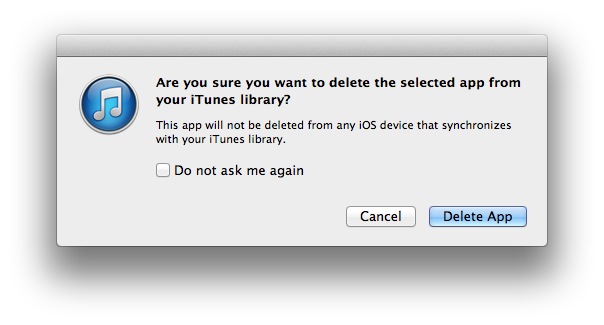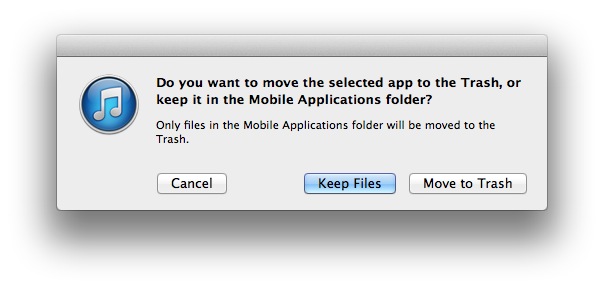It’s easy to understand why Creationists are not pleased with Cosmos: A Space Odyssey. After all, the show’s host, Neil deGrasse Tyson, emphatically and repeatedly states that the universe is billions of years old — in contradiction to the Creationist’s calculated age of less than 7,000 years. The show unequivocally supports a Darwinian view of evolution, another anathema to Creationists. To top it off, the show occasionally takes on religion more directly — noting the pagan origins of Christian holidays and the church’s historical persecution of heretics.
However, the primary challenge that Cosmos presents to religion is more far-reaching. It’s one that extends beyond a minority of people with extreme religious views. By explaining the physical and biological bases of our universe in terms of “natural laws,” it implies an absence of God’s role in their creation and maintenance. Most particularly, the evidence presented on Cosmos represents a challenge to a commonly accepted core religious tenet — the one that states God takes an active interest in and intervenes in our lives, that humans are a central focus of God’s attention, that we should “rule over the fish of the sea and over the birds of the sky and over every living thing that moves on the earth,” and ultimately that we are in some sense “special” and are the reason behind the very existence of the universe.
How exactly does Cosmos challenge all this? Here’s how…
The science
From the viewpoint of science, humans “arrival” in the universe is hardly special. While the universe is almost 14 billion years old, humans did not appear on earth until the very very end of this enormous stretch of time. As an analogy, if you compressed all of time into a “cosmic year,” humans would not appear until about 8 minutes before midnight on December 31. Christ was born only 5 seconds(!) before midnight. The American Revolution happened during the final second (the clock tick we are currently living in).
Further, although we are now here, our continued existence is far from guaranteed. For one thing, changes in the size and temperature of our sun will almost certainly destroy the earth within several billion years. Unless we have found a way to colonize other planets by then, humans will disappear. But we needn’t wait that long. Due to both natural and human-caused changes in our environment (such as global-warming), our species is likely to go extinct well before that far-off catastrophe. This should not be a surprise. Extinction is a natural part of life on earth: it’s estimated that “99.9% of all species that have ever existed are now extinct.”
For those who want to cling to the notion that humans represent some sort of pinnacle of creation, the news gets even worse. Most views of the evolution suggest that the very existence of humans is an unlikely occurrence that might well have never happened. By this I mean, if we could rewind the tape of evolution, and allow for different random events to occur as the tape replays, it is quite likely that humans would never appear.
One episode of Cosmos beautifully demonstrated this point. It showed how the earth is not at all the static object that it appears to us to be. It only seems static because the time scale of change far exceeds our life spans. At the appropriate larger time scale, we would see how the movement of tectonic plates separated the continents and created oceans. These movements continue today and may yet reverse, eventually bringing the land masses back together.
In another example of cycling, repeated minor wobblings of the earth’s orbit over thousands of years result in ice ages. The polar icecaps grow, extending much closer to the equator than they are now, only to recede again as the ice age retreats.
In other words, the human-friendly earth that now exists may not remain in the future.
Not every big change occurs in cycles that take thousands of years to transpire. Our planet’s evolution is occasionally altered by dramatic one-time random events — such as the giant meteor that led to the extinction of the dinosaurs. If that meteor had not landed, it’s quite plausible that dinosaurs would still roam the earth and humans would have never evolved.
Finally, there’s the matter of the earth’s place within the vast scope of the universe. The earth is one of several planets orbiting the sun, the collection of objects that make up our solar system. The size of our solar system is immense. In fact, it has only been in the last year or so that Voyager 1 managed to become the first human-made object to exit our solar system. It took years of travel to do so. Members of our species may never travel much beyond the borders of our solar system. It would take 4 light-years, for example, just to get to our nearest star.
And yet, the size of our solar system is dwarfed by the rest of the universe. Our solar system is just one of billions of such systems in our galaxy. In fact, if you were to look at an 8×10 photo of the Milky Way galaxy, our sun would be too small to distinguish, buried in a tiny unremarkable corner. And our galaxy is just one of about “100 billion galaxies in the observable universe.” Put another way, if you held up a grain of sand to the night sky, the patch that it covers would contain about 10,000 galaxies. The universe is so large that, even if we could travel at the speed of light, it would take about 93 billion years to travel from one end to the other.
The story may not end with our universe. Most recently, astrophysicists are coming to the conclusion that there are multiple universes. Ours is merely one of many.
Viewed from this pan-universe perspective, the “pale blue dot” of earth is infinitesimally small. It is of no consequence to our universe, certainly not to a multi-verse. If the universe can survive supernovas that destroy entire star systems, it can certainly survive without earth. If you metaphorically thought of just our universe as equivalent to a human body, the earth’s destruction would be about like the death of one sub-cellular structure in one random unimportant cell.
The questions
Returning to the matter of religion, the immense size and time scale of our universe would appear to pose some problems:
If we egocentrically maintain that humans are the crowning achievement of God’s creation, a primary reason for the very existence of the universe, how does it make sense for the universe to be so large that most of it has no direct bearing on our existence? And, conversely, that we have almost no influence beyond our planet? What’s the point of having solar systems so far away that we can never even know of their existence? Why wouldn’t an omnipotent God create something on a more human-like scale?
Similarly, why create a universe in which humans did not even arrive until billions of years after the birth of the universe, at the last few “minutes”? Wouldn’t it make more sense for an omnipotent God to bring humans on the scene much sooner?
Given that we are likely to go extinct as a species, how can we be central to “God’s plan”? From a religious perspective, what is the “purpose” of a universe existing after we are gone? And what would have been the purpose of a universe where we, as a species, never even appeared?
Finally, given the immense size of the universe, it’s likely that there is life, perhaps life similar to ours, on at least a few other planets out there. If this is so, what are the implications for a “special creation” of humans on earth? Are these other life forms on other planets just as important to God? If not, why not?
Taken together, it’s hard to comprehend how all of this can fit within a view that places humans at the center of God-directed existence. Not impossible, granted. But very hard. Cosmos’ creators may or may not have intended to raise these challenges. But that is the effect the show has had on me, and I presume many others.
The answers
One response to these challenges is to assert that science is simply wrong. Despite all the contrary evidence, for example, one might still contend that the earth is less than 7,000 years old. Why? Because the Bible says so. This is the Creationist view.
Nothing I or anyone could say will affect people who hold such a view. At the same time, it’s relatively easy for the rest of us to dismiss these extreme views. The contrary evidence, from geology to evolution to astrophysics, is too overwhelming. That’s why I am instead appealing here to people who are at least willing to consider alternatives.
So what about a less extreme view, one that is more consonant with science but still maintains humanity’s central position? One could accept certain facts, such as the billion years age of the universe, and yet largely ignore their implications. If evidence or logic makes a religious view seem implausible, the explanation is that God’s reasons are unknowable to us. In other words, one resorts to the familiar adage: “God works in mysterious ways.” Perhaps the answers will become clear years from now. Perhaps they never will.
By this view, we needn’t explain why a human-focused God created such an immense universe that existed for such an immense stretch of time before humans arrived. We simply accept it as true and assume we are too ignorant to ever know God’s rationales. Similarly, God may yet intervene with a miracle and prevent the events that would otherwise lead to our species’ extinction. We can’t know.
Unfortunately, “mysterious ways,” “unknowable futures” and miracles are the weakest cop-outs of arguments. They are non-explanations which can never be proven or disproven. No amount of scientific knowledge can ever call such “explanations” into question. As such, they are useless.
This doesn’t deny the possible existence of some “higher power.” After all, the creation and scope of the universe are indeed hard to fathom. “Why is there anything?” remains an almost impossible to answer question.
That’s why I’m not trying to mount a philosophical argument to prove or disprove the existence of God here. If that’s what you want, there’s plenty of material out there for you to digest, written by experts with much more knowledge than I have (although I did take a brief amateur’s stab at the topic several years back).
Rather, I am suggesting skepticism at the idea of an interventionist God, one that answers prayers and metes out punishments, one that performs miracles, and especially one that places earth and humans at the central core of existence. If you can temporarily suspend any a priori belief in such notions, I believe an Occam’s Razor test would lead to the conclusion that such a view of God doesn’t fit with our scientific understanding of the universe.
The universe, as viewed through the lens of modern science, is no less amazing and awe-inspiring than a Biblical universe. It is simply one that does not place humans at its center. It forces us to accept that we are not anything close to as “special” as most religions would have us believe.
While some religious groups may thus view science as a threat, I prefer to view science more optimistically — as a light that illuminates the darkness that would otherwise surround us, a light that provides the means to understand the wonders of our world and offers our best chance for continuing to survive on this earth and within this universe we call home.


